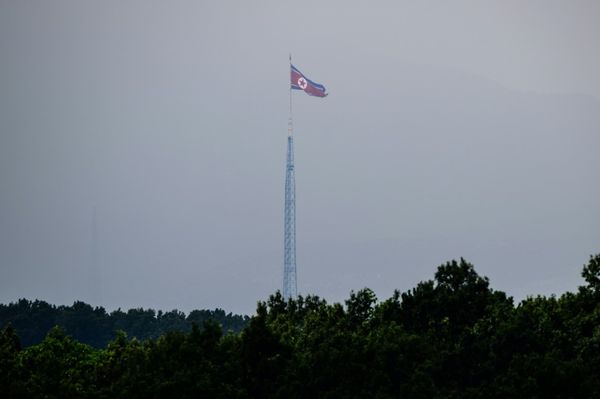
In a sign of the changing outlook for the defense industry, data-mining software company Palantir Technologies recently surpassed Pentagon contractor and aerospace supplier RTX in market cap.
Shares of Palantir, which offers AI-powered platforms to military, civilian and corporate customers, have soared 345% this year, giving the company a valuation of $174 billion at Friday's market close.
That tops RTX, the parent company of Raytheon, Collins Aerospace, and Pratt & Whitney, which has climbed 40% this year and has a market cap of $157 billion. It's also bigger than Boeing's $115 billion as the planemaker has suffered setbacks at its passenger-jet and space businesses.
Palantir had already exceeded more pure-play defense stocks like Lockheed Martin and Northrop Grumman, which are valued at $121.6 billion and $69 billion, respectively.
Meanwhile, privately held SpaceX is poised to grow into an even bigger behemoth. According to Bloomberg, Elon Musk's rocket company is considering a tender offer that would value it at $350 billion. That's up from a $210 billion valuation after an earlier tender offer in June.
After being founded in 2002, SpaceX is now the top provider of launch services, regularly performing missions for the military, NASA and companies, while also operating a constellation of more than 6,000 satellites used by military and civilian customers.
SpaceX's meteoric rise has been marked by once-unthinkable technological feats as well as the Pentagon's greater emphasis on space-based capabilities in future warfighting scenarios.
Similarly, Palantir's recent stock surge comes amid a flurry of developments that point to the increasing importance of AI in the military—and the growing involvement of the tech sector.
In the past week alone, Palantir and Shield AI agreed to share parts of their proprietary software to help develop autonomous aircraft. Palantir and top government consultancy Booz Allen Hamilton announced a "co-creation partnership." Palantir and defense-tech startup Anduril Industries also teamed up in a deal that allows battlefield information collected by Anduril's Lattice software to be incorporated into a Palantir platform. Separately, Anduril and ChatGPT parent OpenAI announced plans to work on anti-drone systems.
Last month, Palantir and Amazon Web Services agreed to provide U.S. intelligence and defense agencies access to Anthropic's AI models. And Facebook parent Meta revealed it is making its Llama AI models available to defense partners.
Earlier this year, Palantir marked a major milestone when it became the first software company to serve as a prime contractor for a Pentagon program, winning the Army's Titan contract to produce a next-generation targeting node.
Palantir has also developed a manufacturing operating system dubbed "Warp Speed" that new partner Shield AI will adopt to produce its autonomous drones.
The rise of Palantir echoes Tesla's eclipsing of auto giant General Motors in 2017 as Musk led the charge in upending the car industry.
Today, Musk's role as co-chair of the Department of Government Efficiency in the Trump administration could give defense-tech challengers a boost against traditional Pentagon giants.
Last month, Musk derided "idiots" making manned fighter jets like Lockheed's F-35 while touting the future of autonomous drones. His goal to cut $2 trillion from federal spending could also put lucrative Pentagon deals under more scrutiny.







